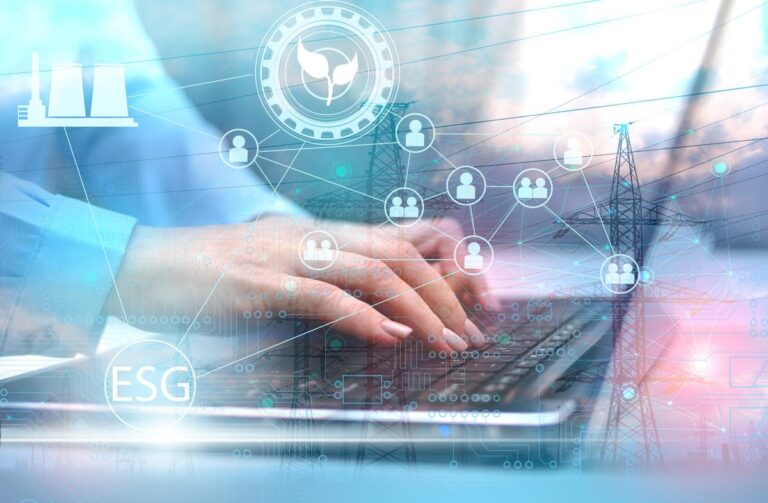
In a world that has become increasingly interconnected, we rely on access to real-time, robust data to complete the simplest of tasks. From checking if a product is in stock at our local store, to checking the registration number of our Uber, this so-called modern data has become the norm. The data is available instantly, everywhere. It empowers people to make better, well-informed decisions and is used in a more ethical manner.
To unlock the power of modern data, effective use of AI and ML will facilitate an ESG data … [+]
However, the possibilities of modern data go far further than personal use. To unlock the power of modern data, effective use of artificial intelligence (AI) and machine learning (ML) will facilitate an environmental, social and governance (ESG) data revolution. Modern data will be the key to disruption and innovation in this space, enabling rapid results across a wide range of sectors.
So, let’s delve into the opportunities that modern data provides in ESG.
Environment – disrupting the energy market
In an increasingly tumultuous energy market, customers have been forced to navigate the highest energy prices on record. With people working from home swaddled in blankets reluctant to turn the heating on, there is more appetite than ever to make our homes more energy efficient, reduce our emissions and ultimately, cut costs. For instance, recent research found that 90% of Irish homeowners have plans to boost the efficiency in their homes, yet 61% have no idea where to start. This is where modern data comes in.
Smart technology takes advantage of modern data, with affordable IoT sensors creating interconnected energy ecosystems at home and in business environments. Integrating automation into this complex data landscape allows homeowners and business leaders to adjust heating, lighting, and air conditioning levels automatically as and when needed. Not only does this enable vital cost savings but helps to reduce carbon emissions.
This level of interconnectivity and leveraging of modern data also enables customers to be ‘prosumers’ – where home and business owners can produce and sell renewable energy generated on their own property. With enhanced connectivity and energy storage, people can live off their own supply, even selling energy back to the grid when they have a surplus. This interconnected technology also allows for predictive maintenance, extending the longevity of buildings and their systems, reducing repair costs compared to preventative or responsive methods.
Social – powering DE&I and tools for justice
In addition to shaking up the energy market, modern data can be an innovative tool to drive forward social goals. In DE&I, combining AI with modern data allows organisations to scan through candidate profiles online to find the best person for the job, regardless of gender, race, sexuality, age, or background. Using technology in this way can help to reduce unconscious bias in the hiring process and expand talent pools. Companies can even use AI with their rich modern dataset to identify ways to make job listings more inclusive and attractive to a more diverse range of candidates.
Effective use of modern data can also be used for social justice. Innovations like Spotlight, a tool used to detect child trafficking activity in chat rooms and illegal websites, help to catch criminals online. This ML-backed solution combs through enormous quantities of online content able to pick out suspicious behaviour, identifying and saving children at risk of trafficking.
Similar technology can be used to detect other cybercriminals, primarily in finance. Tackling fraud is a volume game – with hundreds of millions of transactions and thousands of customers at threat from fraudsters. Previously, financial institutions looked to increase their headcount to boost security, but now AI and ML integrations do the heavy lifting. Able to sift through exponential financial data, banks gain a centralised view of suspicious events, detect new fraud schemes, and identify entry points.
Governance – data sovereignty and ensuring trust
Modern data must be treated ethically and correctly in whichever region it resides. Due to the nature and volume of modern data, governance can be a tricky element to tackle for many businesses. Data regulations vary from nation to nation and are constantly changing, making it increasingly difficult for multi-national organisations to keep their houses in order. To build a robust governance strategy, many integrate data across the organisation to gain a single view. This paves the way for automation to update governance rules on the dataset in real-time, ensuring that data is kept where it must and ensuring data sovereignty.
Governance of modern data is also key to building trust in public organisations. For instance, the boundless data that the NHS holds on every British citizen must be treated with the utmost care. It is a delicate balancing act, keeping this confidential, sensitive data secure whilst using it to improve services and treatments – the world of balanced judgement. Governance should be seen as a tool to draw reliable, real-time insights from modern data, not as a roadblock.
Modern data will be key to hitting ESG goals. For the planet, it will power interconnected energy management and enable the rise of the prosumer. In social, bringing together the power of modern data and AI allows for improved diversity, equity, and inclusion (DE&I), and used as a tool for justice. As for governance, a focus on data sovereignty and the creation of a single view of real-time data ensures that data is treated with respect.